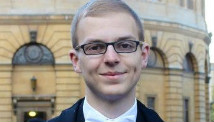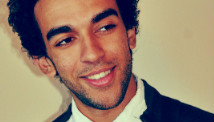NEW DELHI/SINGAPORE (Reuters) - A woman whose gang rape sparked protests and a national debate about violence against women in India died of her injuries on Saturday, prompting a security lockdown in New Delhi and an acknowledgement from India's prime minister that social change is needed.
Bracing for a new wave of protests, Indian authorities deployed thousands of policemen, closed 10 metro stations and banned vehicles from some main roads in the heart of New Delhi, where demonstrators have converged since the attack to demand improved women's rights. Hundreds of people staged peaceful protests at two locations on Saturday morning.
The 23-year-old medical student, severely beaten, raped and thrown out of a moving bus in New Delhi two weeks ago, had been flown to Singapore in a critical condition by the Indian government on Thursday for specialist treatment.
The intense media coverage of the attack and the use of social media to galvanize the protests, mostly by young middle-class students, has forced political leaders to confront some uncomfortable truths about the treatment of women in the world's largest democracy.
Most sex crimes in India go unreported, many offenders go unpunished, and the wheels of justice turn slowly, according to social activists who say that successive governments have done too little to ensure the safety of women.
"The need of the hour is a dispassionate debate and inquiry into the critical changes that are required in societal attitudes," Prime Minister Manmohan Singh said in a statement.
"I hope that the entire political class and civil society will set aside narrow sectional interests and agenda to help us all reach the end that we all desire - making India a demonstrably better and safer place for women to live in."
T.C.A. Raghavan, the Indian high commissioner to Singapore, told reporters hours after the woman's death in a Singapore hospital that a chartered aircraft would fly her body back to India on Saturday, along with members of her family.
The body was taken to a Hindu casket firm in Singapore for embalming. Indian diplomats selected a gold and yellow coffin to transport her home, staff at the firm told reporters.
"We are very sad to report that the patient passed away peacefully at 4:45 a.m. on Dec 29, 2012 (2045 GMT Friday). Her family and officials from the High Commission (embassy) of India were by her side," Mount Elizabeth Hospital Chief Executive Officer Kelvin Loh said earlier in a statement.
Delhi's chief minister, Sheila Dikshit, said the woman's death was a "shameful moment for me not just as a chief minister but also as a citizen of this country".
The woman, who has not been identified, and a male friend were returning home from the cinema by bus on the evening of December 16 when, media reports say, six men on the bus beat them with metal rods and repeatedly raped the woman. Media said a rod was used in the rape, causing internal injuries. Both were thrown from the bus. The male friend survived.
The attack has put gender issues center stage in Indian politics arguably for the first time. Issues such as rape, dowry-related deaths and female infanticide have rarely entered mainstream political discourse.
Analysts say the death of the woman dubbed "Amanat", an Urdu word meaning "treasure," by some media could change that, although it is too early to say whether the protesters calling for government action to better safeguard women can sustain their momentum through to national elections due in 2014.
WORST PLACE
The public outcry over the attack caught the government off-guard. It took a week for Singh to make a public statement on the attack, infuriating many protesters who saw it as a sign of a government insensitive to the plight of women.
The prime minister, a stiff 80-year-old technocrat who speaks in a low monotone, has struggled to channel the popular outrage in his public statements and convince critics that his eight-year-old government will now take concrete steps to improve the safety of women.
"The Congress mangers were ham-handed in their handling of the situation that arose after the brutal assault on the girl. The crowd management was poor," a lawmaker from Singh's ruling Congress party said on condition of anonymity.
Protesters fought pitched battles with police around the capital last weekend. Police used batons, water cannon and teargas to quell the protests.
Commentators and sociologists say the rape has tapped into a deep well of frustration many Indians feel over what they see as weak governance and poor leadership on social issues.
A global poll by the Thomson Reuters Foundation in June found that India was the worst place to be a woman because of high rates of infanticide, child marriage and slavery.
New Delhi has the highest number of sex crimes among India's major cities, with a rape reported on average every 18 hours, according to police figures. Government data show the number of reported rape cases in the country rose by nearly 17 percent between 2007 and 2011.
Indian media had accused the government of sending the woman to Singapore to minimize any backlash in the event of her death but Raghavan said it had been a medical decision intended to ensure she got the best treatment.
The suspects in the rape - five men, including two brothers, aged between 20 and 40, and a 15-year-old - were arrested within hours of the attack and are in custody. The suspects, all from a slum in south Delhi, will be formally charged with murder, New Delhi Deputy Commissioner of Police Chhaya Sharma told Reuters.
Home Minister Sushilkumar Shinde told Times Now television the government was committed to ensuring "the severest possible punishment to all the accused at the earliest".
"It will not go in vain. We will give maximum punishment to the culprits. Not only to this, but in future also. This one incident has given a greater lesson" Shinde said.
He said earlier the government was considering hanging for rape in rare cases. Murder already carries the death penalty.
(Additional reporting by Ross Colvin and Diksha Madhok in New Delhi; Kevin Lim, Saeed Azhar, Edgar Su and Sanjeev Miglani in Singapore; Editing by Mark Bendeich and Robert Birsel and Ross Colvin)



